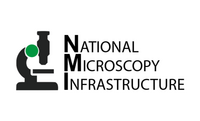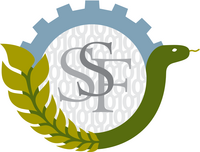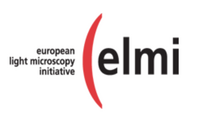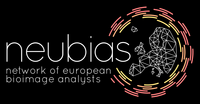National and International Networks and Infrastructures
The Centre for Cellular Imaging is part of, and cooperates with, several national and European networks and infrastructures. This allows you as a researcher to access advanced techniques.
Swedish National Microscopy Infrastructure (NMI)
CCI is part of the National Microscopy Infrastructure (NMI) as one of four participating universities in Sweden. As a researcher you can apply for getting access to advanced microscopy technology and expertise.
It is a infrastructure for the use and support of advanced microscopy in life science. NMI was founded in April 2016 with the financial support from the Swedish Research Council (VR-RFI) and cofinancing from the participating Universities: Royal Institute of Technology, Stockholm University, Umeå University and University of Gothenburg.
The mission of NMI is to provide faster access to innovative technology and competence in microscopy for the life science research community. NMI will also coordinate national and international knowledge exchange in microscopy.

NMI website
Bridging Nordic Microscopy Infrastructure (BNMI)
NordForsk has granted the Bridging Nordic Microscopy Infrastructure (BNMI), a network of national imaging infrastructures offering open access to biological imaging technologies in participating Nordic countries, a total of 2.5 Million NOK for 3 years.
BNMI partners include Norwegian Molecular Imaging Consortium (NorMIC) and Norwegian Advanced Light Microscopy Imaging Network (NALMIN), National Microscopy Infrastructure (NMI) in Sweden, Finnish Advanced Light Microscopy Node (FiALM), Danish BioImaging (DBI) Network and BioMedical Center of University of Iceland (BMC-UI).

NordForsk website
Read more
Swedish Foundation for Strategic Research (SSF)
The CCI is also supported by the Swedish Foundation for Strategic Research (SSF): "Research Infrastructure Fellow”. This five-year SSF programme is intended to contribute to the development of research infrastructures and to its support and user-accessibility, as well as to enhance career paths for specialists within academia.

SSF website
European Light Microscopy Initiative (ELMI)
In 2001, the European Light Microscopy Initiative was founded as the networking platform for biological imaging core facilities in Europe, now comprising 331 members from 33 countries. At the annual ELMI meeting, imaging scientists and technology developers, biologists, facility staff and bio-optic manufacturers come together for learning about new innovative imaging technologies, exchanging best practice, and meeting the major bio-optic manufacturers in dedicated workshops.

ELMI website
Core Technologies for Life Sciences (CTLS)
Core Technologies for Life Sciences is a non-profit association that aims to bring together scientists, technical and administrative staff working in or in close association with shared resource laboratories, such as core facilities, technological platforms and research infrastructures.

CTLS website
Euro-BioImaging (EuBI)
The European Research Infrastructure for Imaging Technologies in Biological and Biomedical Sciences provides open physical user access to a broad range of state-of-the-art technologies in biological and biomedical imaging for life scientists. In addition, EuBI will offer image data support and training for infrastructure users and providers.

EuBI webiste
COMULIS
COMULIS – Correlated Multimodal Imaging in Life Sciences – is an EU-funded COST Action (CA17121) that aims at fueling urgently needed collaborations in the field of correlated multimodal imaging (CMI), promoting anddisseminating its benefits through showcase pipelines, andpaving the way for its technological advancement andimplementation as a versatile tool in biological andpreclinical research. CMI combines two or more modalities to gatherholisticinformation about the same specimen. It creates a compositeview of the sample with multidimensional information about its macro, meso-andmicroscopic structure, dynamics, function andchemical composition. Since no singletechnique can reveal all these details, CMI is the only way to understand biomedical processes mechanistically.

COMULIS website
NEUBIAS
NEUBIAS – Network of European BioImage Analysts – is an EU-funded COST Action (CA15124) that aims to provide a stronger identity to BioImage Analysts (BIAlysts) by organising a new type of meeting fostering interactions between all stakeholders including: Life scientists, BIAlysts, microscopists, developers and private sector. BIAlysts have recently emerged in various research institutions but these experts are still not well recognised in the Life Science community. They are specialised in customising Bioimage analysis workflows by assembling and automating multiple computational tools, and by interacting with Software developers and Life Scientists (LSc) to facilitate Image Analysis (IA). The Action plans to create an interactive database for BioImage analysis tools and workflows with annotated image sample datasets, to help matching practical needs in biological problems with software solutions. It will also implement a benchmarking platform for these tools. To increase the overall level of IA expertise in the LSc, the Action proposes a novel training programme with three levels of courses, releasing of open textbooks, and offering of a short term scientific missions programme to foster collaborations, IA-technology access, and knowledge transfer for scientists and specialists lacking these means.
